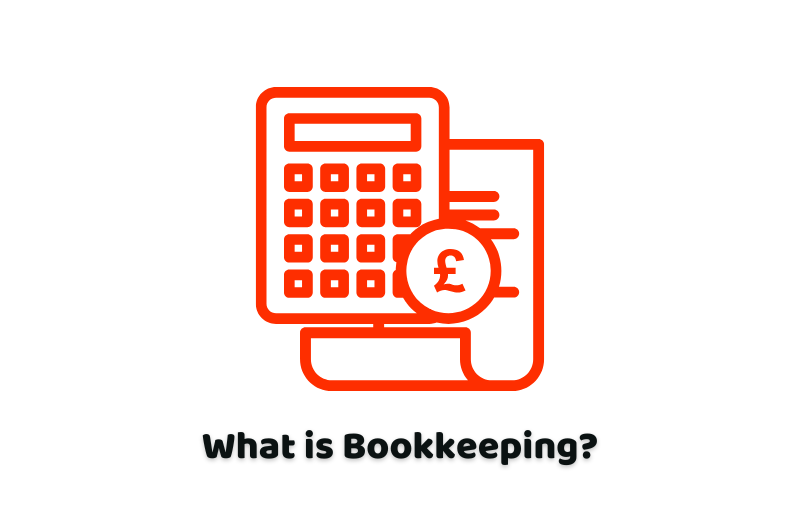What is Bookkeeping and Difference Between Bookkeeping and Accounting?
You can be associated with running small business activities or a large organisation in the UK; it is important to know the fundamentals of what bookkeeping is in the UK. The standards of accounting, keeping compliance with the tax law, and managing finances are a few primary tasks that need priority to keep yourself away from potential penalties. In case of being too occupied with everyday business activities, you do need to outsource your bookkeeping to free up your time and energy to invest better in the growth of your business. Furthermore, this comprehensive guide is designed to provide a discussion on what bookkeeping is, how it is different from traditional accounting, and how to keep your books in the UK. Continue reading to learn more about the basics of booking in the UK.
Talk to one of our intelligent and clever professional bookkeepers to get your further queries about bookkeeping services in London. We will ensure to come up with the best possible solution for you.
What is Bookkeeping?
Individuals associated with the business, especially beginners, often enquire about what is bookkeeping. In simple words, we can say that it is a record that businesses on products in the UK maintain related to their everyday transactions. However, the previous practice of accounting was more inclined toward making manual records by hand in ledgers. This was a time-consuming task, and that too with higher chances of errors. This made it hard to maintain the record. However, in today’s business era, there is excellent computing and building software to manage every detail in an error-free way.
What are the Different Types of Areas Covered by Bookkeeping?
Generally, different areas are covered under the recent ways of bookkeeping in the UK. We have outlined and explained them in the following.
1- Expenses: What You Spend
This is considered to be all the things you spend money on to run your business. It’s the money going out of your business. We also keep track of how you pay for these expenses. It is like using a bank account, credit card, or PayPal.
2- Income: What You Earn
This is the kind of amount of money that your business makes from selling products or services to customers. You can think of it as the money coming into your business.
3- Assets: What You Own
These are known as the valuable things your business owns, such as:
- Property and equipment
- Inventory (products or materials)
- Cash in the bank
- Money owed to you by customers (debtors)
4- Equity: Your Business’s Worth
This is known to be the value of your business. This represents the shareholders’ ownership and interest. It’s like the business’s net worth.
4- Liabilities: What You Owe
These are debts your business owes to others, like:
- Overdrafts or loans from banks
- Money owed to suppliers (trade creditors)
- Long-term loans
What is the Difference between Bookkeeping and Accounting?
In simple words, what is bookkeeping, the process of bookkeeping in its basic form is all about the administrative process that keeps the record of financial transactions for the kinds of product-based businesses in the UK. This is used to capture all the ins and outs of everyday business accounts. In other words, we can also call it there over the financial flow of a business that is written carefully to make a history of it. In the case of managing a small business, normally, the business owners perform the booking on their own. However, the majority of business owners prefer to outsource bookkeeping to relevant professionals. Especially when the business is growing and the volume of transactions also increases.
In the case of accounting, the records are also maintained regarding financial data in a professional way. This classifies the correct data and analyses financial data as well. However, the complexity and sophistication are at a deeper level in this case. Old methods of accounting were reliable but the chances of errors were higher due to which many unfavourable business situations could occur. This is why business owners are more inclined toward advanced ways to reduce errors and avoid paying hefty amounts of fines.
How To Keep Your Books?
Fortunately, keeping books is not a complex process. When it comes to the UK, there are plenty of professionals available who are trained in a great way to do the job of keeping your accounts and managing finances according to UK law. You can outsource the accounting work to such professionals, and they will be at your service to set you free from the burden. However, in the case of large businesses, most business owners prefer to hire professionals to get the job done on their business premises. As a business owner, you just need to make sure that your hired professionals are working according to the updated regulations of the UK accounting standards.
The Bottom Line
In conclusion, while managing business core activities, it is essential to understand what is bookkeeping in the UK. The good news is that it is quite simple to understand the bookkeeping processes and its way of working. All you aim to do is to make sure that the records are being maintained accurately. So that it cannot lead to any unfavourable business situation for your future. Keeping the books is also an easy task and most of the small business owners are capable of managing it on their own. However, once transaction volume grows with the business, owners prefer to either hire an expert or outsource the job to relevant professionals. If you are thinking the same, you can get in touch with us. We would love to be at your service and solve your accounting problems instantly.
Disclaimer: All the information provided in this article on what is bookkeepinf, including all the texts and graphics, is general in nature. It does not intend to disregard any of the professional advice.

